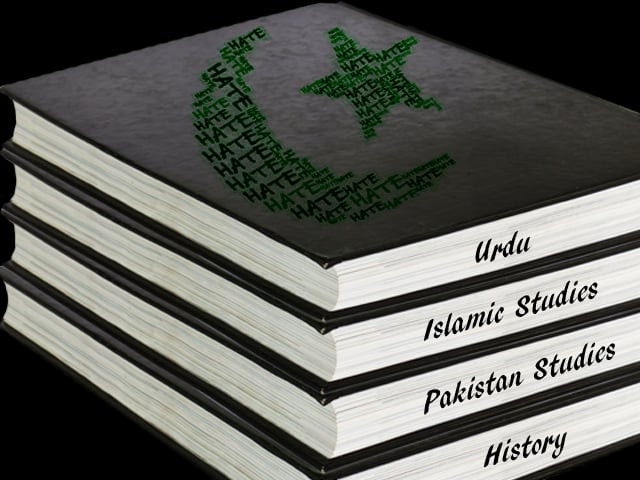Pushing hate to the margins
hate-based ideas could be marginalised by propagating superior ideologies that promote tolerance, peace and patience

Our political parties, civil society and the media should be fighting this menace openly with ideas that give hope rather than induce despair. TOCK IMAGE

However, the main sources identified as responsible for the publication of such literature are the Jamaatud Dawa (JuD), Jaish-e-Mohammad (JeM), Sipah-e-Sahaba and Imamia Student Organisation. According to interior ministry sources, these publications directly or indirectly glorify militancy and fuel support for the TTP and al Qaeda. Interestingly, both Hafiz Saeed, the chief of the JuD, and Maulana Masood Azhar, the chief of the JeM, contribute in their respective publications under pen-names — Abu Shams and Saadi, respectively.
The Sipah is said to be producing the largest number of hate publications with about 13 hate books being sold freely in bookstores in Islamabad. In the wake of the 9/11 attacks, about 22 publications spreading hatred were banned but they reappeared within weeks, some under the same title and others under different names. What has added to the worry is, due to the writings of a number of ‘influential contributors’, these publications are deemed to be ‘worth reading’. And horror of horrors, such contributors include former army chief General (retd) Mirza Aslam Baig, former DG-ISI Lieutenant-General (retd) Hamid Gul, an adviser to the prime minister, Irfan Siddiqui, and in-service civil servant Orya Maqbool Jan.
Article 19 of the Constitution is very clear on the cognisibility of hate literature. It states: Every citizen shall have the right to freedom of speech and expression, and there shall be freedom of the press, subject to any reasonable restrictions imposed by law in the interest of the glory of Islam or the integrity, security or defence of Pakistan or any part thereof, friendly relations with foreign States, public order, decency or morality, or in relation to contempt of court, [commission of] or incitement to an offence.
So under the law, the state can confiscate all such literature and proceed against its publishers, authors and sales outlets. The Pakistan Telecommunication Authority should be able to blank out most of such literature from the internet and social media. Perhaps, orders to the effect have already been passed to the relevant authorities for action as suppression of hate literature is an important part of the 20-point National Action Plan. However, this is easier said than done. The capacities of the official administrative and law-enforcement agencies being what they are at present, one is constrained to believe that the task assigned to them looks like mission impossible. More so, because those who produce hate literature currently enjoy almost an unlimited socio-political influence and superior firepower.
True enough, even the most developed societies have failed to suppress clandestinely produced hate literature using the law. But hate-based ideas could be marginalised by propagating superior ideologies that promote tolerance, peace, broad-mindedness and patience. So, while the law is doing what it is supposed to do under the circumstances — combing the country’s lanes looking for hate literature, confiscating it and apprehending its publishers — our political parties, civil society and the media should be fighting this menace openly with ideas that give hope rather than induce despair, instead of whispering in undertones about it in drawing rooms while looking over our shoulders in absolute terror.
Published in The Express Tribune, January 26th, 2015.
Like Opinion & Editorial on Facebook, follow @ETOpEd on Twitter to receive all updates on all our daily pieces.















COMMENTS
Comments are moderated and generally will be posted if they are on-topic and not abusive.
For more information, please see our Comments FAQ